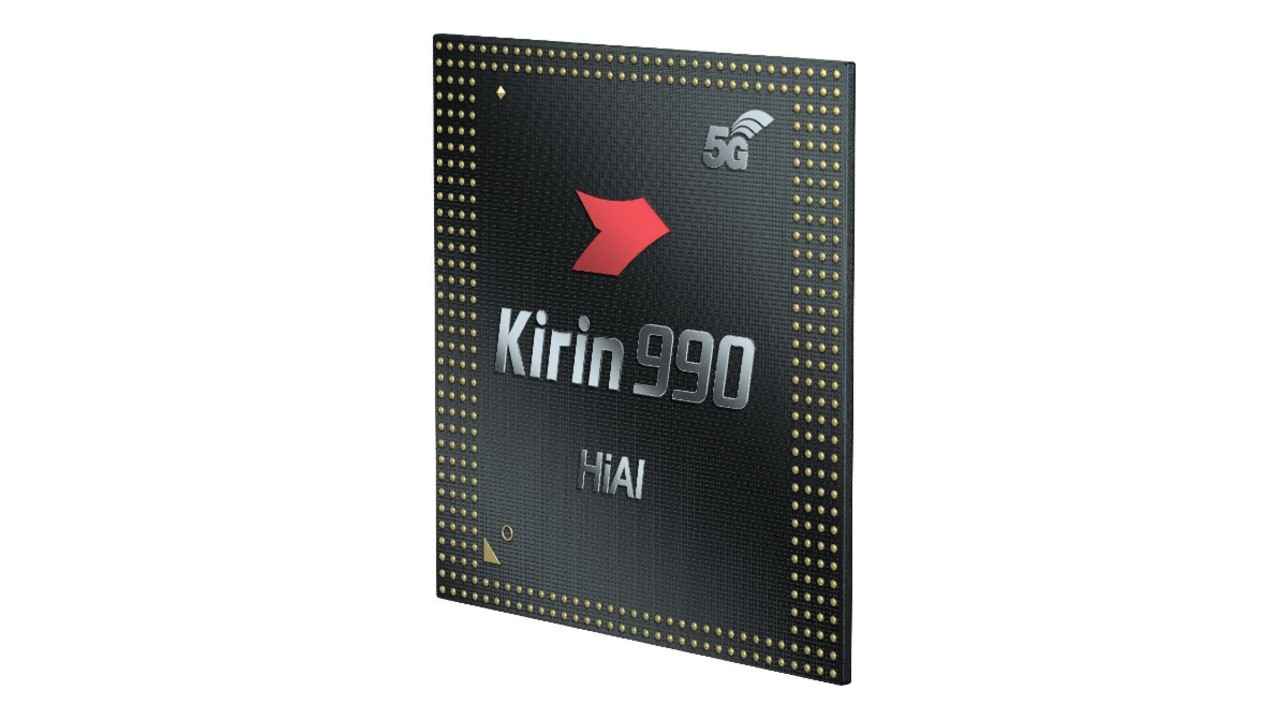Huawei announces Kirin 990 5G with 16-Core Mali-G76 GPU

Huawei Kirin 990 5G has been announced at IFA 2019.
It features 16-Core Mali-G76 GPU, 5G modem, and more.
The Kirin 990 5G features an improved Neural Processing Unit (NPU)
A few days ago, Samsung announced the Exynos 980, the company’s first processor with an integrated 5G modem. Now, at IFA 2019 Huawei has unveiled the Kirin 990 5G, which it is calling "industry's first 5G SoC." Further, the company claims that Kirin 990 5G is the best in class chipset in terms of power efficiency. The Huawei Kirin 990 5G is made from a 7nm manufacturing process. It consists of nearly 10.3 billion transistors, which is 6.9 billion more than its predecessor, Kirin 980.
The Kirin 990 5G features a refreshed CPU architecture with two Cortex-A76 2.86 GHz cores, two Cortex-A76 2.36 GHz cores that juggle everyday workload and four Cortex-A55 1.95 GHz cores efficiency cores for lighter tasks. Huawei claims that Kirin 990 5G offers a 10 percent single-core and 9 percent multi-core performance advantage as compared to the Qualcomm Snapdragon 855 chipset.
The Kirin 990 5G sports a Mali-G76 GPU for the graphics needs. It has been optimised to pack 16 cores, which is six more than the Kirin 980. Huawei claims that the Mali-G76 GPU offers a 6 percent overall performance boost and 20 percent power efficiency boost as compared to the Snapdragon 855.
The new chipset also features an improved dual-image signal processor (DISP) for better photo-taking capabilities as compared to the Kirin 980. Huawei has said that the new DISP can reduce noise in still images by up to 30 percent and by up to 20 percent in videos.
The Kirin 990 5G features an improved Neural Processing Unit (NPU) that is said to boost the ETH AI benchmark by up to 4.76 percent than the Kirin 980.
Additionally, Kirin 990 5G will be the first all-in-one, full-frequency 5G chipset to hit the markets. The company claims that Kirin 990 5G’s split uplink design and machine learning-based adaptive receiver will help boost 5G speeds in places of "high-movement" and weak signal-strength, for example, cars, trains and more. In theory, the Kirin 990 5G is capable of delivering 1.25 Gbps upload speeds and 2.3 Gbps download speeds.




